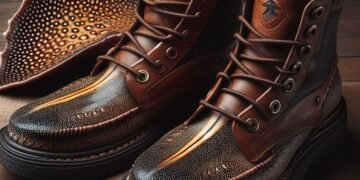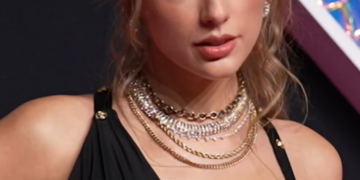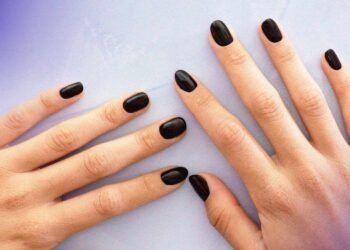Did you know that there’s such a thing as uncombable hair syndrome? It’s a condition characterized by dry, frizzy hair that doesn’t go flat, regardless of how much you comb it. It’s rare, though, with only about 100 scientifically documented cases.
The thing is, environmental conditions, habits, and hairstyles can cause hair dryness, too. An example is the weathering effect of the sun’s heat and UV rays. Your hair can get all dry due to excessive blow-drying and dyeing, too.
Since you can’t completely avoid all causes of dry hair, it’s best to learn how to hydrate your hair instead. We’ve listed some of the best strategies below, so be sure to read on.
Use a Gentle, Moisture-Locking Conditioner
The cuticle is the outermost layer of the hair shaft, the part of the hair that grows out of the scalp. This layer of the hair strand consists of scales (dead cells) that help keep the hair intact.
A sealed cuticle is important as it helps lock in the moisture within the hair shaft. By contrast, an unsealed cuticle lets moisture evaporate, leading to dry, brittle hair.
Fortunately, experts say that the ideal conditioner can help seal the hair cuticle. For this reason, it’s best to use a gentle conditioner as part of your hair hydration regimen.
Just as important is to give your hair a thorough rinsing after conditioning it. Warm water at a higher pressure appears to be best for rinsing conditioners. You can check out this guide to learn more about proper hair conditioning practices.
Mask Your Hair Up
Hair masks are products formulated with moisturizing butter and oils. Like conditioners, they soften the hair, too, but you usually need to leave masks on for at least five minutes. For severe hair dryness, you can let the product sit for 15 to 20 minutes.
A hair mask also differs from a conditioner in that the former nourishes the hair. That’s why you’ll find masks containing shea butter and other vitamin E-rich oils. The mask’s required leave-on time allows these nutrients to sink into each hair strand.
Go With Plant-Based Hot Oils
Vitamin E is a key nutrient in oils derived from almonds, castor beans, coconut, corn, jojoba, or olives. This vitamin is a well-known antioxidant that protects the skin and scalp from the sun’s UV rays. It may also help keep the hair shaft healthy by sealing off the hair cuticle.
As such, consider hydrating your hair by applying one of these oils onto your hair. However, make sure you don’t have any allergies to these oils, as you don’t want to irritate your scalp.
It’s also best if you warm (not boil) the oil before gently massaging it into your strands for a few minutes. Then, allow the oil to sit for at least half an hour before shampooing and rinsing. You can also leave the oil in your hair overnight and cleanse it the morning after for better results.
Use Leave-On Masks During Summer and Winter
During winter, the cold, dry air can make the hair cuticle’s layers lift and splay. This can then cause the cuticle to become unsealed, and thus, dry out.
In the summer, the sun’s intense heat and higher UV indices can dry and wreck your hair, too. Overexposure to the sun can also sunburn your scalp, promoting dryness and dandruff.
For those reasons, you should give your hair more TLC during really hot or cold days. An example is applying leave-on hair masks before you head out. You can also use anti-frizz products for extra moisturization and to help keep your hair down.
Don’t forget to use protective headwear, such as hats in the summer and bonnets in the winter. These help slow the evaporation of your leave-on hair products.
Wearing wide-brimmed head coverings is especially important when the UV index is high. This can help protect not only your hair but your skin from cancer, too.
Mind Your Diet
About one in 10 people in the US have a nutritional deficiency. Some of these are vitamins A, B, C, D, and E and minerals like iron, iodine, calcium, and magnesium.
All those nutrients, in turn, play roles in the growth, structure, or overall health of the hair. As such, lacking in any of them can contribute to hair woes, such as dryness, brittleness, or worse, loss.
Fortunately, all those good things are present in fresh, healthy food and produce. In fact, animal and plant products are the best sources of these nutrients.
You can also take dietary supplements to boost your nutritional intake. However, it’s best to visit your doctor first before you take any of these products. This way, your healthcare provider can test you for nutrients that you may be lacking.
From there, your physician can give you a list of key nutrients to look for in a supplement.
Stay Hydrated
The skin, including your scalp, consists of 64% water. As such, letting yourself become dehydrated can lead to a dry, flaky, itchy scalp. These problems, in turn, can rob your hair of the nutrients it needs to stay healthy and moisturized.
Besides, dehydration can affect your entire body, from the brain to the nails of your toes. So, make it a habit to drink at least 2.7 liters of water if you’re a female or 3.7 liters of water if you’re a male. However, you should drink more if you sweat a lot or spend a lot of time under the sun.
Follow These Tips on How to Hydrate Your Hair Starting Today
There you have it, your ultimate guide on how to hydrate your hair and keep it from being dry and brittle. So, as early as today, give these hair care tips a try to help your hair stay soft and lustrous all day.
Ready for more health, wellness, and lifestyle tips and tricks like this? Feel free to check out our other articles while you’re here or bookmark our site for later reading!






























































